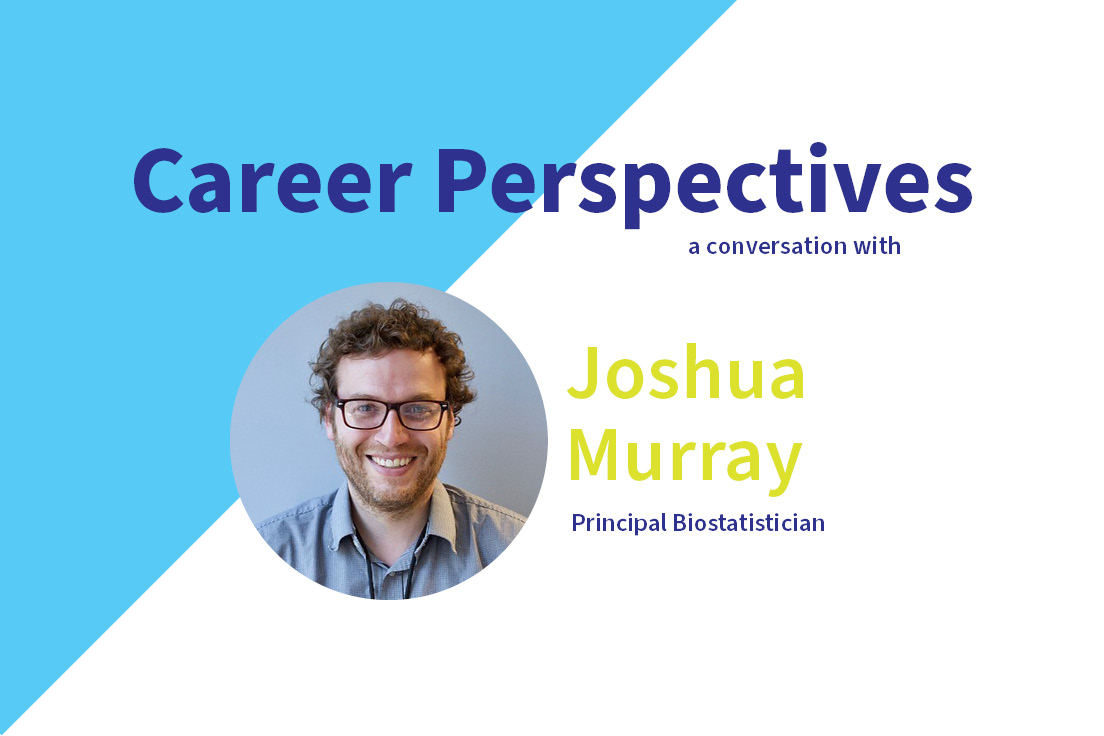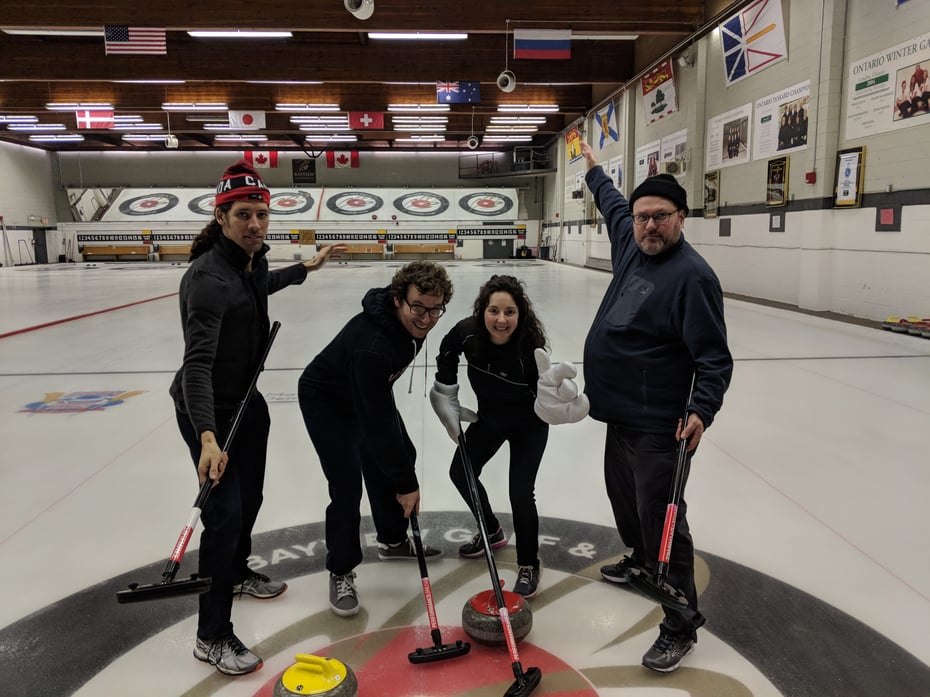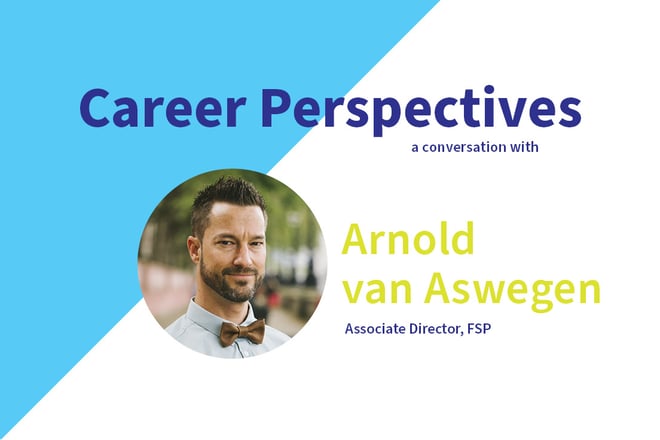Career Perspectives: A Conversation with Joshua Murray


In this latest edition of the Career Perspectives series, we are excited to introduce our readers to Joshua Murray, Principal Biostatistician in Functional Service Provision (FSP) at Cytel. He is based in Toronto, Canada, and joined Cytel in August 2022. With a diverse background spanning academia, government, healthcare, and industry, Josh brings a wealth of experience to the forefront. Join us as we delve into his perspectives on mentorship, collaboration, and the dynamic landscape of biostatistics.
Can you give us a little background on your career and your professional journey so far? What motivated you to pursue a career in biostatistics?
My journey into biostatistics and data science began with a position as a research assistant/data analyst in the Department of Nursing at the University of Alberta. In this role, I gained a thorough understanding of the research process, from design to data collection, management, and analysis to manuscript writing, all within the context of working on a randomized trial. Here, I was fortunate enough to be mentored by outstanding statisticians who encouraged me to further my education in biostatistics to determine if I was genuinely interested in the field.
I decided to pursue an MSc in Biostatistics at the University of Toronto, which propelled me into a career as an applied biostatistician. I worked in health care for the government of New Brunswick for three years before moving back to Toronto. My interest gradually shifted towards machine learning, application development, and broader programming concepts, leading me to roles more deeply entrenched in data science.
Before joining Cytel, I worked as a data scientist and later as the director of advanced analytics at Unity Health Toronto (UHT) for five years. Our group worked closely with clinicians and hospital administration to build data-focused applications that improve patient outcomes and hospital efficiency. We deployed many projects including early warning systems to detect patient deterioration, emergency department volume forecasts, and optimization models to determine appropriate staff sizes for nursing resource teams.
During my tenure at UHT I received a status appointment as an assistant professor at the University of Toronto, where I could mentor students and teach classes in applied statistics and data science.
How did your teaching experience at the University influence your approach to biostatistics within the clinical research field?
Teaching at the University of Toronto has been invaluable, sharpening my ability to communicate complex statistical concepts clearly and effectively. It reinforced the importance of collaboration and communication in biostatistics, particularly when translating statistical findings into actionable insights for clinical research.
What is your role at Cytel and what do you like best about it?
I work as a data scientist within Cytel’s FSP business, where I provide support to a global pharmaceutical client. Our team supports trials by building R Shiny applications that help with generating validated outputs (tables, figures, and listings), generating exploratory analyses, building machine learning models and designing animated visualizations. Much of this work is new to the statisticians and medical leads we work with, so part of our role is to showcase the potential of working with R and web applications.
My work is generally evenly split between application development (building JavaScript animations with the D3 library, which are used in presentations and at conferences) and building machine learning models (both supervised and unsupervised). Sometimes I work on building tools that help with our efficiency, like applications and libraries that work directly with SAS or applications that can output validated code from within the client’s frameworks.
What I love most about my role is the variety; every day presents new challenges and opportunities to learn and innovate.
Collaboration is often crucial in roles such as yours. Which departments or teams do you closely collaborate with?
Certainly! Collaboration is paramount in my role, and the teams I work with vary from one project to another. Typically, I work closely with the lead statistician from a trial to understand the trial and the data and to gather technical requirements for the project. In addition, I work with medical leads to get feedback on any visualizations or analyses I am working on. Lastly, I collaborate with other FSP team data scientists, managing code repositories, documentation, validation, and application deployment.
Could you tell us about your mentors at Cytel and how they have contributed to your professional growth within the company? How do you envision mentorship playing a role in the development of future biostatisticians within our organization?
I have been fortunate to receive exceptional mentorship since I began my journey at Cytel, starting with Steve Thacker, my initial manager. Steve played an instrumental role in facilitating my transition and ensuring I hit the ground running. He introduced me to opportunities, such as presenting at the Cytel R User Group and participating in interviews set up for R developer candidates. Moreover, he always lent a supportive ear during our conversations every few weeks, even after his promotion to Vice President of FSP. The guidance from my seniors at Cytel has continued with my current manager, Alex Buck, who I know has my back and is always looking for opportunities to get me more involved in my role at Cytel.
Mentorship is crucial to the development of future statisticians. In our field, knowing the answer to every question is impossible. Knowledge sharing is one way to bridge the gap and help more employees quickly gain experience. Importantly, it is not a one-way street. Junior data scientists, whom I have mentored in the past, often bring fresh insights from their recent academic learnings, making them closer to the cutting edge. They frequently introduce me to new tools that help me be more efficient.
How do you stay updated with the latest developments and methodologies in biostatistics, and how do you integrate these into your work at Cytel?
I stay up to date by attending online seminars hosted by Posit, reading academic papers, and following social media. I also take advantage of the learning opportunities available on the LinkedIn Learning platform that we have access to through Cytel. Whenever I find something intriguing that could benefit our team, I bring it up during our bi-weekly meetings or incorporate it into discussions while conceptualizing new applications or analyses.
Could you share a challenging project you have worked on and how you approached and resolved it?
One particularly challenging project I spearheaded involved developing an application for conducting Win Ratio analysis. This technique, often used in the context of competing risks and other complex analyses, was new to me. To tackle this, I read several papers and was able to engage with methodologists who had prior experience with Win Ratio analysis. Drawing from these interactions, I built a flexible Shiny app module that enables the users to decide on the number and types of endpoints (binary events, time to event, continuous) to include and determine their order of importance. This project was not only a deep dive into a new statistical technique but also an exercise in creating a user-friendly tool that could accommodate a variety of analytical needs.
What combination of knowledge, skills, and technical competencies are required to work as a data scientist at Cytel?
At Cytel, proficiency in effective communication is the most important skill for data scientists. They need to ask the right questions when gathering requirements for a new project, explain technical application details to the statistics leads we work with, and elaborate on the results from novel analytical methods to the medical team. Essential technical skills include a solid foundation in statistics and mathematics, proficiency in programming languages like R, SQL, and JavaScript, and an understanding of clinical trial processes.
What would you say is the most rewarding aspect of working in this industry and at Cytel?
The most rewarding aspect is seeing the direct impact of our work on healthcare outcomes and clinical research. Whether it is improving efficiency in generating trial outputs, enhancing patient care, or contributing to medical knowledge, our work at Cytel makes a difference.
Lastly, what are your main interests outside of work?
In my free time I love playing recreational league sports, including floor hockey, slow pitch, beach volleyball, and curling bonspiels. I am also an avid golfer. Music is my passion, and I enjoy playing acoustic guitar, mandolin, and pedal steel guitar.


A career with Cytel FSP provides opportunities to be involved in unrivaled biostatistics and research projects to improve drug development success rates. To learn more about a career at Cytel, or to explore our openings, click below:
Read more from Perspectives on Enquiry and Evidence:
Sorry no results please clear the filters and try again

Career Perspectives: A Conversation with Arnold van Aswegen

Reinforcement Learning: A Promising Tool for Predicting Optimal Treatment in Complex Diseases



